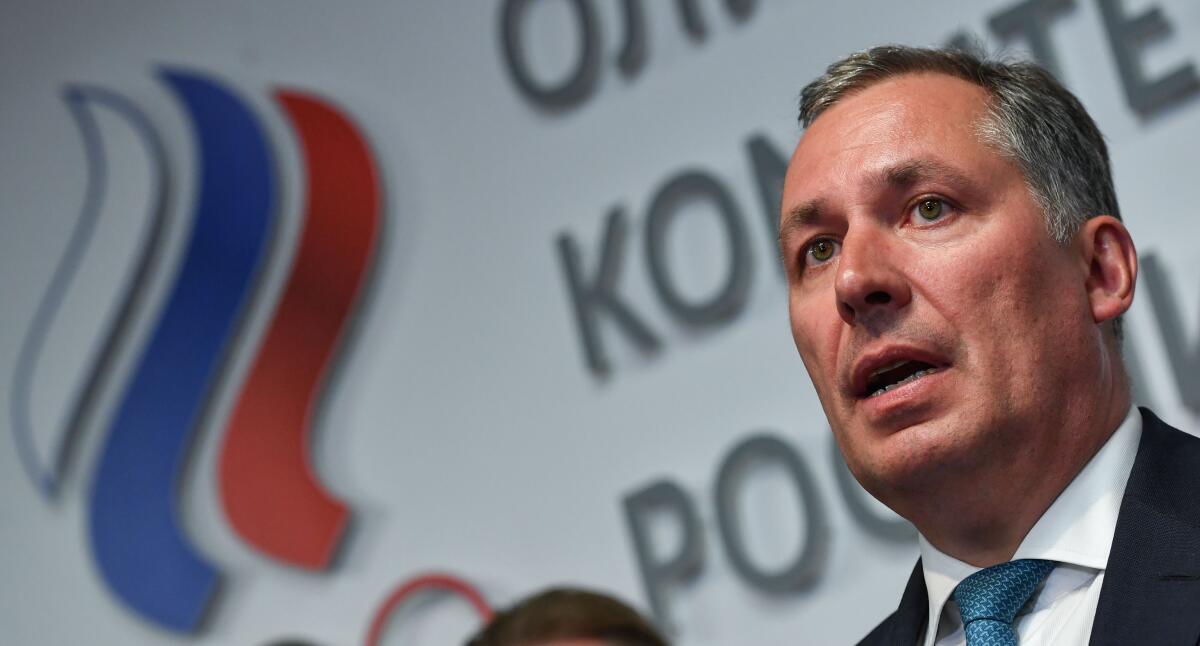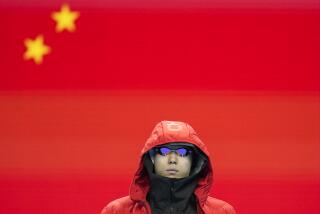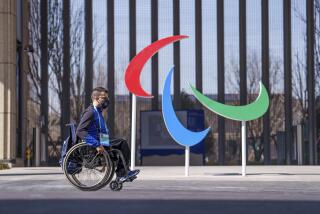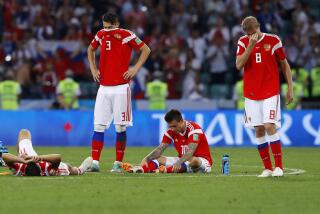Anti-doping authorities find ‘inconsistent’ data from Russian testing lab

- Share via
Less than a year before the 2020 Summer Olympics, Russia could face critical sanctions after anti-doping authorities found “inconsistencies” in data from a Moscow testing lab.
The World Anti-Doping Agency announced Monday that it has opened a formal compliance procedure, giving Russian officials three weeks to answer a list of questions and provide comments.
“In the meantime, the process of using the remaining data from the Moscow laboratory and other forms of evidence to bring more cheats to justice continues,” WADA stated in a news release.
Russian officials expressed concern that the latest development could jeopardize their participation in Tokyo next summer, with Stanislav Pozdnyakov, president of Russia’s Olympic Committee, reportedly characterizing the situation as “very serious.”
The long-standing scandal began in 2015 amid allegations that Russian athletes, coaches and officials had for years participated in systemic cheating.
The nation was allowed to compete on a limited basis at the 2016 Summer Olympics, then banned from the 2018 Winter Games, with some athletes allowed to participate as “neutrals” if they could prove they were clean.
As the recovery process continues nearly a decade after the devastating 2011 Japan earthquake, organizers of the 2020 Tokyo Summer Games say they want to help Fukushima.
The national track team continues to face particularly severe sanctions, and, on Monday, the International Assn. of Athletics Federations said Russia remains banned in the run-up to the world championships later this month.
“There is a recurring problem of athletes and local athletics federations working with banned coaches which undermines the creation of any strong anti-doping culture,” an IAAF official stated.
Other scrutiny has focused on the Russian Anti-Doping Agency, which is responsible for policing its country’s athletes and was initially deemed non-compliant. As part of its subsequent reinstatement, subject to conditions, the Russian agency provided past lab data — although belatedly — to WADA earlier this year.
WADA officials, who now suspect some of the data was manipulated, have provided information to various international sports federations, which could lead to more sanctions for scores of Russian athletes.
As for the broader picture, WADA and the International Olympic Committee have faced criticism for not being tough enough with sanctions.
The IOC made a controversial decision to reinstate Russia last year, so it remains to be seen how this new WADA procedure will affect the country’s standing at the upcoming Summer Games.
“No fixed timeline can be set for this, as due process must be respected,” WADA stated, “but the [executive committee] was assured that WADA is pursuing the matter robustly and as quickly as practicable.”
More to Read
Go beyond the scoreboard
Get the latest on L.A.'s teams in the daily Sports Report newsletter.
You may occasionally receive promotional content from the Los Angeles Times.












